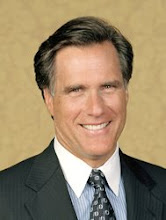Dramatic Devices
Dramatic devices are techniques used by a writer toadd interest to their work or make the audience feel acertain way. These can be used to show contrastbetween two scenes, shocking the audience, or to create dramatic irony.Rhetoric & Rhetorical Devices
From what I was able to gather, rhetoric is the art of persuasion through the act of conversing or writing to another person to influence or persuade them. Rhetoric seems like an over-the-top adornment of verbal or written speech and often 'dresses up' a sentence through unnecessary but ornate sounding words. Rhetoric looks as if it is the perfect tool for liars and suck-ups, but also has practical purposes other than deceiving others. Rhetoric can be useful for breaking bad news to someone, or 'sugar-coating' it, so that others don't take offence to it, or to make it bearable for them to hear. Examples of rhetoric are; "You smell great! As fragrant as a flower."
A rhetorical device it used to create an image or instill and emotion in the reader through the use of descriptive words or phrases. Rhetorical devices are great for drawing us into a book or conversation and many if not all great writers and speakers use rhetorical devices to give depth into their books or speeches. While many people can use rhetorical devices, I've only read a few books where a writer has instilled a certain emotion in me but regardless it seems as if it is a good tool to enhance the writing or speech of someone who is looking to do that. An example of a rhetorical device would be; "Ian heard the horrible car-crash, it sounded as if as hell had broken loose and was headed straight for him."
An argument is a tool used in persuasive conversation, or writing, that at its simplest form, contains a premise and a conclusion. Well thought out arguments are structured, and are used to persuade or change the mind of other people. A premise is defined as 'A claim that a reason, or statement, is presumed to be true within the context of an argument towards a conclusion.' Arguments also contain an inference which, through the use of statements, will link the premise to the conclusion.
Example of a well structured argument;
"You should go to english class."
"But why?"
"Because if you don't get your english credit you won't graduate."
"So?"
"Well if you don't graduate then you can't get into university/college, so going to english class and getting your credit is a good idea!"
The premise/thesis is "You should go to english class." The inference is "Because if you don't don't get your english credit you won't graduate." The conclusion would be "Well if you don't graduate then you can't get into university/college, so going to english class and getting your credit is a good idea!"
MLA Citation stands for 'Modern Language Association', is used to identify research notes, and to briefly credit sources with citations in the text.
For example:
A study shows teenage romances last, on average, two to three months. (Teenage Romance, 2009)
A literary device is a technique, or device, that produces a certain effect in the reader or listener. An example of a literary device would be an allegory, pun, metaphor, etc.
A narrative technique is a method used while telling, or writing, a story that allows you to tell it from a different perspective. Examples of a narrative technique would be point-of-view, third person, or a soliloquy.
